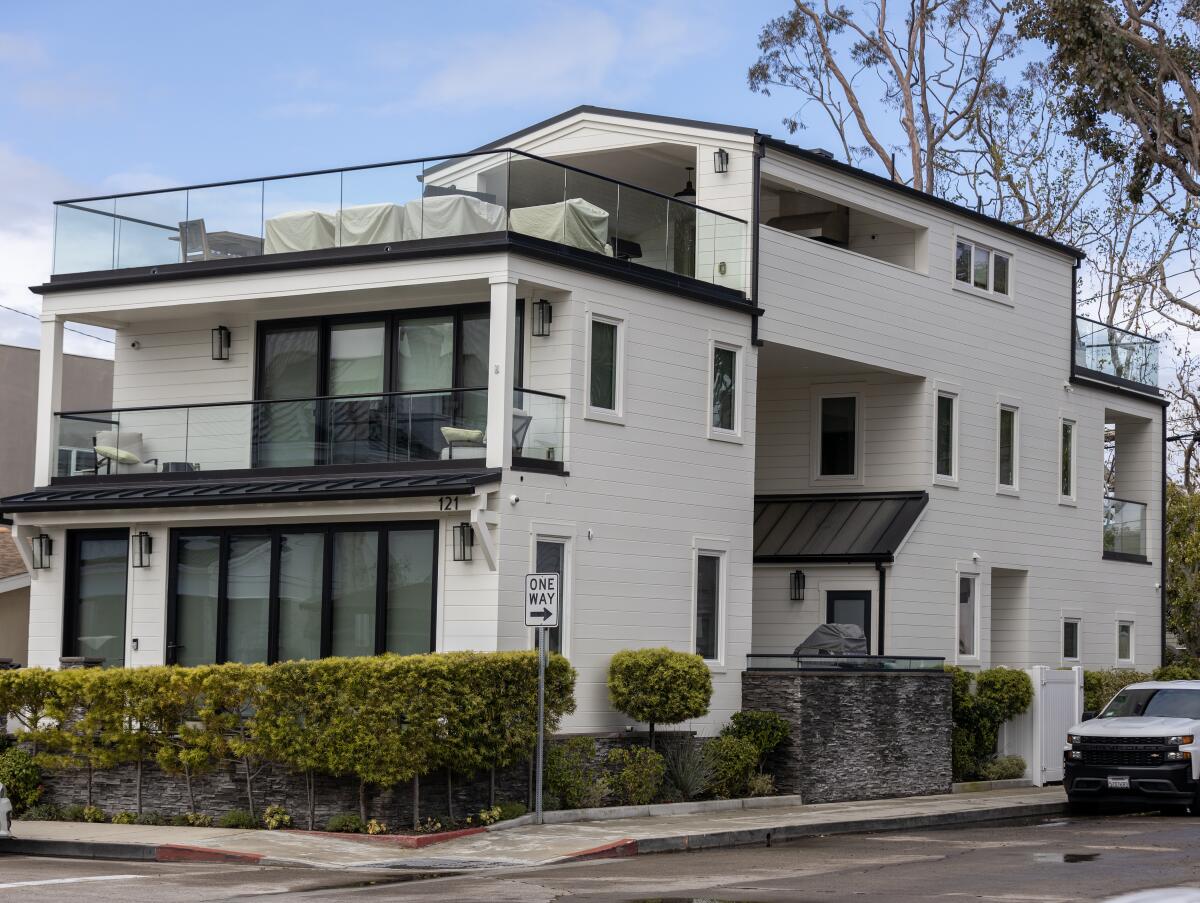Newport Beach expands timeshare definition to fractional home ownership

- Share via
Newport Beach’s definition of timeshares will now include fractional home ownership, putting a tentative close on the issue raised by residents in recent months until the Coastal Commission takes a look at the proposed revision.
The move Tuesday night follows on the heels of direction given by the Newport Beach City Council in March to fold the burgeoning real estate trend — in which several owners enter an agreement to purchase a property and split its usage equally based on each party’s percentage of ownership — into the same category as timeshares. By doing so, it forces all fractionally owned properties to comply by the same regulations and standards and prohibits them from existing in all residential zones of the city.
About 12 fractionally owned residences exist in Newport Beach, according to city staff. The property broker Pacaso has been a driving force in the practice and in fact this week is advertising on its website one-eighth ownerships of seven properties in Newport Beach, including co-ownership of an upscale four-bedroom home on the 300 block of Grand Canal for $967,000.
“Pacaso strongly opposes Newport Beach’s decision to expand the definition of timeshare to include co-ownership, which could unfairly impact not just professionally managed properties but also anyone who co-owns a home with family or friends,” according to Pacaso spokeswoman Chrissy Bruchey. “This decision goes against the property rights of homeowners in Newport Beach, where more than 30% of homes are owned in LLCs or trusts.
“Co-ownership of second homes makes owning real estate more accessible in a region where home values are increasing,” Bruchey said in an email Wednesday. “We urge Newport Beach to reconsider this broad regulation and instead focus on targeted, pragmatic solutions that address any legitimate concerns without unjustly categorizing co-owned properties as timeshares.”
Community development director Seimone Jurjis stressed that the city was not trying to regulate ownership but the specific use of properties.
The ordinance to amend the planning and zoning codes in addition to the local coastal program implementation plan will return to the council dais on May 23 for final adoption.
Jurjis said Wednesday that the hope is the Coastal Commission will approve the ordinance within the next few months, as staff for both the state agency and city have been in talks to expedite the process. Worth noting is that the delay will only affect properties in the coastal zone. The revised regulations will take effect farther inland as soon as the city makes its final approvals.
Jurjis said the 12 existing properties will be considered legal non-conforming properties, so they will continue to operate as they do.
Some neighbors have long maintained that the constant residency turnover at these properties causes traffic, noise and parking issues — similar, some argue, to short-term rentals — while owners of these properties have pushed back against the implication that they own timeshares. Instead, they say, they consider Newport Beach their second home.
All the latest on Orange County from Orange County.
Get our free TimesOC newsletter.
You may occasionally receive promotional content from the Daily Pilot.




